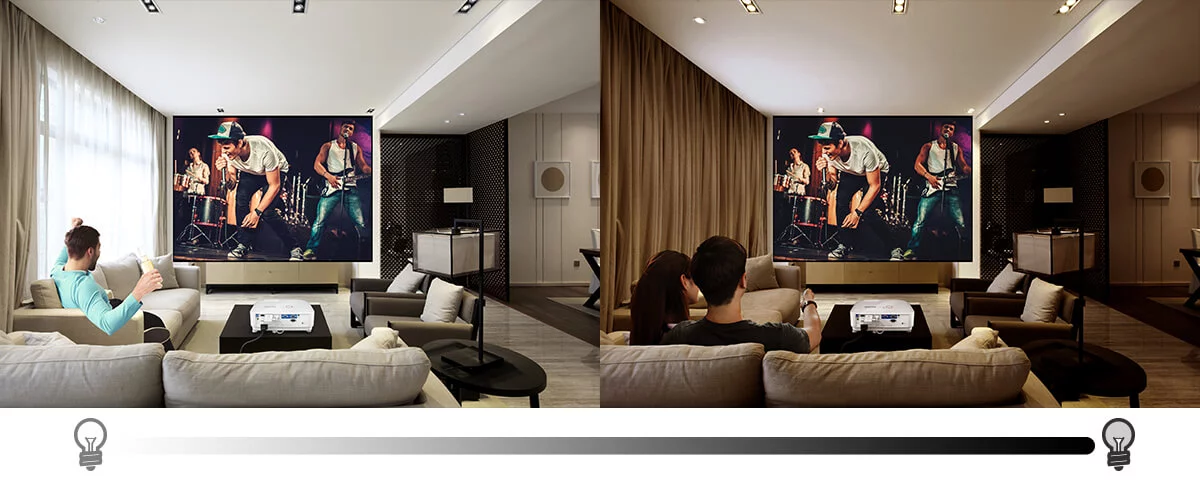
When choosing a projector for home entertainment, several factors come into play to ensure that you select the best option for your needs. Here’s a comprehensive guide to help you make an informed decision:
1. Resolution
HD (720p), Full HD (1080p), or 4K: Higher resolution provides better clarity and detail. For most home entertainment setups, a Full HD (1080p) projector is sufficient, but if you want the best quality and future-proofing, consider a 4K projector.
2. Brightness
Measured in Lumens: The brightness of a projector will affect visibility, particularly in well-lit rooms. Typically, look for projectors with at least 2,500 lumens for serious home theater use. If you plan to use the projector in a bright room, you may need 3,000 lumens or more.
3. Contrast Ratio
Depth of Color: A higher contrast ratio means deeper blacks and more vibrant colors. A contrast ratio of at least 1,000:1 is generally recommended for home entertainment.
4. Throw Distance
Projection Distance: Consider how far the projector needs to be from the screen or wall to display the desired image size. Some projectors are short throw (can project a large image from a short distance), whereas others need more space.
5. Screen Size
Consider Your Space: Determine the optimal screen size for your viewing distance. The size of your screen will influence your choice of projector and its throw distance.
6. Portability
Fixed vs. Portable: If you need flexibility (like moving it outdoors), consider a lightweight, portable projector. For a dedicated home theater setup, a fixed installation might be better.
7. Connectivity Options
Input Ports: Check for HDMI, USB, and other input options. Ensure that the projector can connect to your preferred devices (e.g., streaming devices, gaming consoles, laptops).
8. Built-in Speakers
Audio Quality: Many projectors come with built-in speakers, but they often don’t provide the best sound. If audio quality is important, consider using external speakers or a home theater system.
9. Lamp Life and Replacement Costs
Longevity and Maintenance: Look at the lamp life (measured in hours). LED and laser projectors typically have longer lifespans and lower maintenance costs compared to traditional lamp-based projectors.
10. Technology Type
DLP vs. LCD vs. LCoS: Different technologies offer various benefits: DLP (Digital Light Processing): Known for sharpness, good for fast-moving images (great for gaming). LCD (Liquid Crystal Display): Offers vibrant colors and is often less expensive. LCoS (Liquid Crystal on Silicon): Provides excellent color and contrast but tends to be pricier.
11. Noise Level
Fan Noise: Some projectors can be noisy during operation. Look for specifications on decibel levels, especially if you’re sensitive to noise or plan on using the projector in a quiet setting.
12. Smart Features
Built-in Streaming Capabilities: Some projectors come with smart features that allow you to stream content directly from apps without needing external devices. Check for compatibility with popular streaming services.
13. Budget
Find the Best Value: Set a budget and try to balance features with cost. Remember to consider potential additional expenses (like a screen or audio system) in your overall budget.
14. Reviews and Recommendations
Research: Read customer reviews and expert opinions on various models. Look for projectors that have garnered positive feedback for reliability and performance.
Conclusion
Choosing the right projector for home entertainment is about aligning it with your specific needs, room conditions, and budget. By considering these factors, you can find a projector that provides an enjoyable viewing experience, making your movie nights, sports games, and gaming sessions extraordinary.